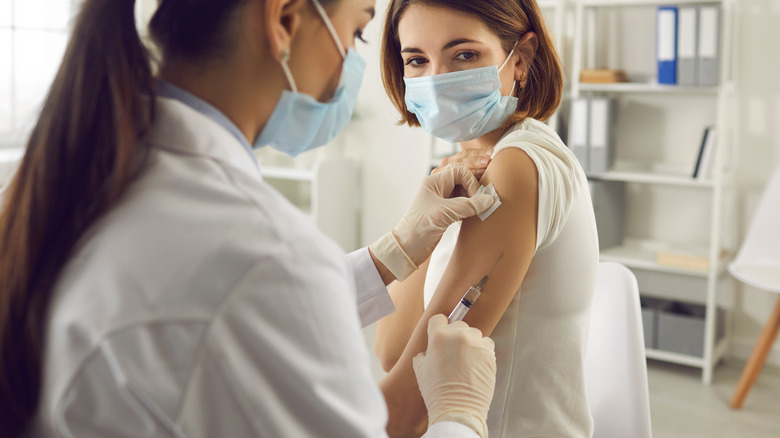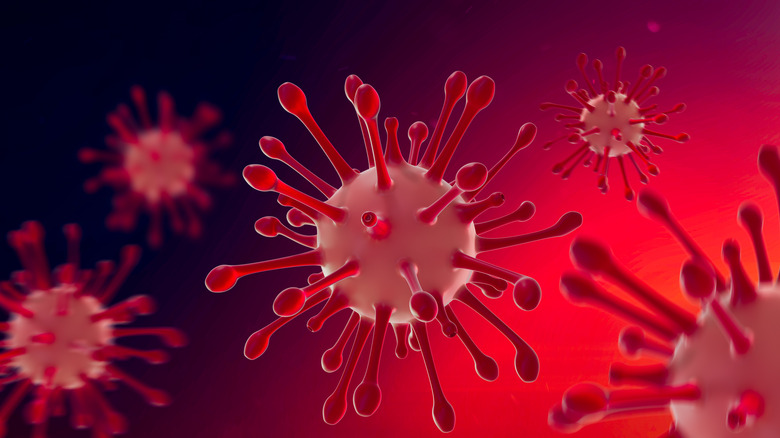What You Should Know About 'Hybrid Immunity' And COVID-19
Vaccines are proven to be a powerful tool in the fight against COVID-19. They greatly reduce risk of contracting and developing severe symptoms from the virus. This is because the vaccine supplies people with antibodies that are prepared to fight off the virus, according to the Centers for Disease Control and Prevention (CDC). With this in mind, many people wonder why people who are previously infected should get the vaccine. After all, most people who have had the virus are shown to have antibodies for at least eight months after recovery (per National Institutes of Health).
While this is true, research shows that getting vaccinated boosts people's immunity even further. For example, a study described in CDC's Morbidity and Mortality Weekly Report found that people are more than twice as likely to get a second COVID-19 infection if they remain unvaccinated.
Further research offers even more promising data for people who have been vaccinated after being previously infected.
Getting vaccinated after having the virus offers 'hybrid immunity'
A study published in Nature in June concluded that people who get vaccinated after being infected with SARS-CoV-2 (the virus that causes COVID-19) should have long-lasting protection not only against the strain with which they were infected, but other variants, as well.
A preprint published last month (via bioRxiv) reinforced these findings. The study analyzed the antibodies of 14 people who received the vaccine in 2021 after recovering from the virus in 2020. These antibodies were capable of neutralizing all of the variants of concern that were tested. Virologist Theodora Hatziioannou of Rockefeller University told NPR that these people's antibodies were even able to neutralize SARS-CoV-1, which "is very, very different from SARS-CoV-2."
Even more promising is that these people's antibodies even deactivated a virus deliberately engineered to resist neutralization with 20 different mutations known to evade SARS-CoV-2 antibodies. Meanwhile, the antibodies of vaccinated people with no prior infections and unvaccinated people with a previous infection were no match for this mutant virus.
Another study published in The New England Journal of Medicine discovered that people who were vaccinated against COVID-19 in 2021 after having SARS-CoV-1 back in 2002 or 2003 also have high levels of antibodies capable of neutralizing many different variants and viruses related to SARS.
Virologist Paul Bieniasz tells NPR that all of these findings offer hope that vaccines combined with our immune systems will eventually beat out the virus on a widespread scale, rendering it relatively harmless.


